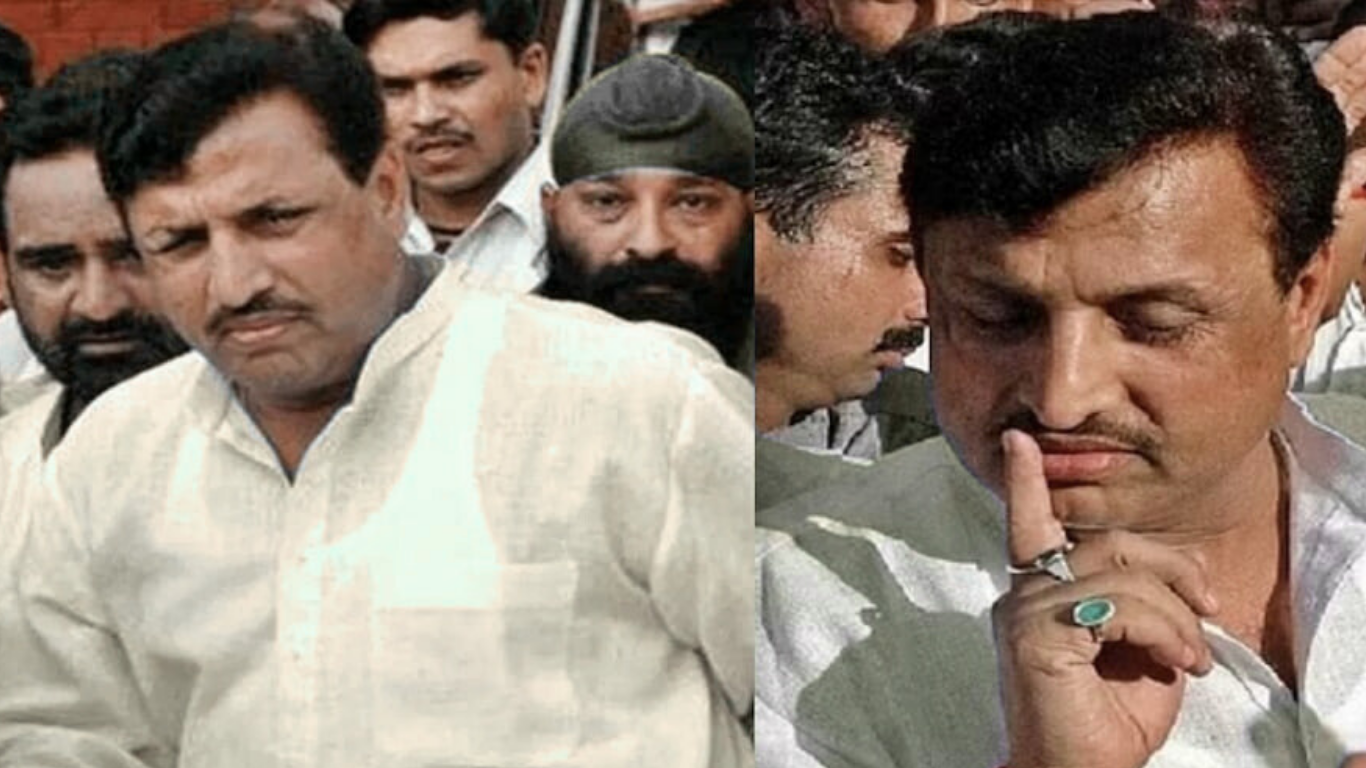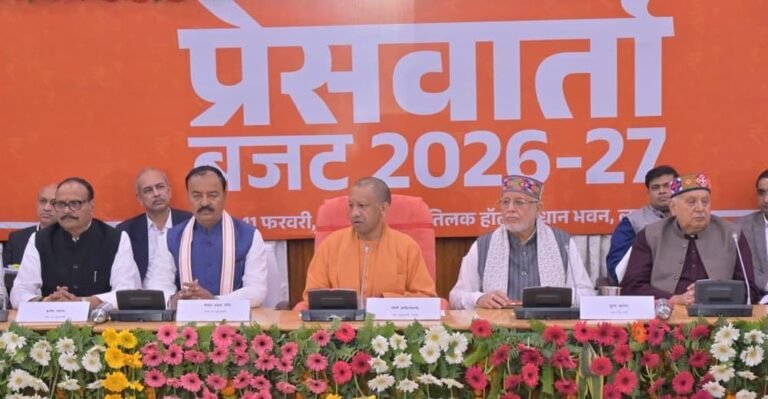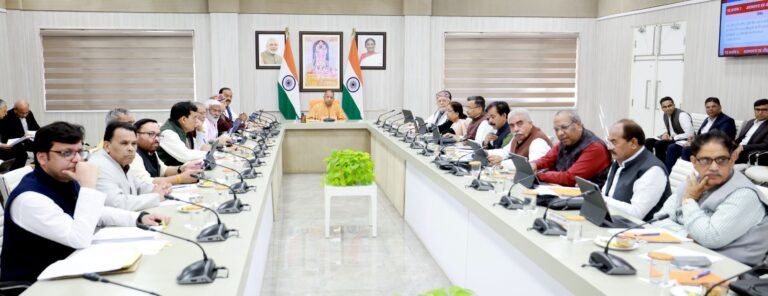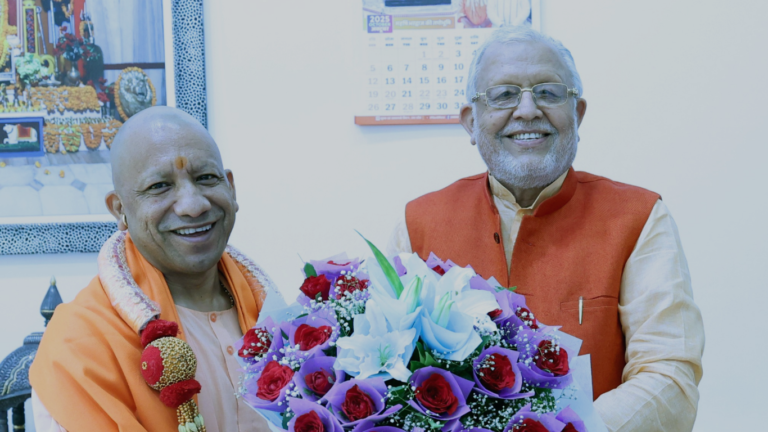
Lucknow, August 27, 2025 – In the murky world of Indian politics, few stories are as chilling as that of Amar Mani Tripathi, a once-powerful politician from Uttar Pradesh whose life reads like a crime thriller. Just this March, the Supreme Court threw out a plea challenging his early release from prison, letting him walk free despite a life sentence for murder. It’s a decision that has left many shaking their heads, wondering how a man linked to killings, kidnappings, and a web of crimes can slip through the cracks of justice so easily. Today, almost after two years of his release, we will expose Tripathi’s dark past, his time behind bars, and why his freedom feels like a slap in the face to victims and the rule of law.
Tripathi, now 68, hails from the eastern part of Uttar Pradesh, a region known for its tough politics and strongmen, or “bahubalis” as they’re called. Born in the 1950s into a modest family, he started his career as a small-time leader but quickly climbed the ladder by switching parties like outfits. He jumped from Congress to BJP, then BSP, and even SP, always landing on his feet with ministerial posts and influence. By the early 2000s, he was a big name in Gorakhpur and nearby areas, controlling votes and businesses with an iron fist. People whispered about his muscle power, but few dared to speak out. He was the classic example of how money and connections can turn a nobody into a kingpin.
But beneath this shiny political exterior lurked a man capable of horrific acts. The most infamous chapter in Tripathi’s dark history is the murder of Madhumita Shukla, a young poet who captured hearts with her words but ended up paying the ultimate price for getting too close to power. Madhumita, just 24 years old, was shot dead in her Lucknow home on May 9, 2003. She was seven months pregnant at the time, and DNA tests later proved the child was Tripathi’s. What started as a passionate affair turned deadly when Madhumita reportedly refused to abort the baby and demanded recognition. Tripathi, married and worried about his reputation, allegedly plotted her killing with his wife, Madhumani Tripathi.
The details are gruesome. Hired gunmen entered into her apartment and fired multiple shots, leaving her body riddled with bullets. Police found a diary in her home, filled with entries about her love for Tripathi and fears for her life. It was a key piece of evidence that painted a picture of betrayal and control. Tripathi was arrested in September 2003, and after a long trial, a Dehradun court sentenced him and his wife to life imprisonment in 2007. The case shocked the nation, exposing how politicians could use their clout to silence threats. Madhumita’s sister, Nidhi Shukla, fought tirelessly for justice, but even she couldn’t believe how the system would later bend for the Tripathis.
This wasn’t Tripathi’s only brush with crime. His dark history goes back further. In 2001, he was accused of kidnapping Rahul Gupta, the teenage son of a local businessman in Basti district. The boy was snatched outside his school, held for ransom, and rescued after a dramatic police chase. Tripathi, then an MLA, was named the mastermind, allegedly to settle a business score. He was arrested along with accomplices, but the case dragged on for years, typical of India’s slow courts. Even after his release from the murder sentence, warrants flew his way. In October 2023, a non-bailable warrant was issued when he skipped court. By December, orders came to attach his properties, and in July 2024, his anticipatory bail was rejected. Interestingly, after all this the victim himself filed a plea saying Tripathi had “no role,” raising eyebrows about possible pressure or payoffs.
Tripathi’s family seems cursed with controversy too. His son, Aman Mani Tripathi, was arrested in 2016 for allegedly murdering his wife, Sara Singh, in a suspicious car crash. Like father, like son? Aman was denied a political ticket because of it, but he still praised Uttar Pradesh Chief Minister Yogi Adityanath as a “guardian” after his parents’ release. It shows how deep the roots of influence run in this family.
Now, let’s talk about his jail term or lack of it. Sentenced to life, Tripathi should have rotted behind bars, but he walked free after just 16 years on August 25, 2023. The Uttar Pradesh government, under Yogi Adityanath, cited “good behavior,” old age – he’s 66, his wife 61, and a 2018 policy for early release. Good behavior? That’s a joke. Nidhi Shukla revealed that the couple spent 62% of their sentence outside prison, lounging in hospitals on medical paroles or enjoying other perks. They were often admitted for “illnesses” that magically appeared when court dates loomed. In one instance, Tripathi claimed heart problems and stayed in a fancy hospital for months. This isn’t justice, it’s a vacation funded by taxpayer money.
The state government’s decision to release him is nothing short of outrageous and shameful. How can the Yogi Adityanath administration, which boasts about cracking down on criminals with zero tolerance policy, let a convicted murderer go free just because he behaved well in jail? It’s a mockery of the system, a betrayal of Madhumita’s memory, and a dangerous message to other powerful crooks. Play nice for a bit, and you’ll be out.
This brings us to the bigger picture- How flexible is India’s justice system when power and money are involved? Tripathi’s story is a textbook case. Life sentences mean little if you can buy endless paroles or influence officials. In India, prisons are overcrowded with the poor, while the rich hire top lawyers to delay trials forever. Tripathi switched parties seamlessly, always finding allies who shielded him. Even in jail, he lived like a VIP in Room No. 8 at Gorakhpur prison, with special treatment. Money talks, bribes to jail staff, donations to parties, or threats to witnesses.
Look at the numbers- From 2007 to 2023, Tripathi was technically serving life, but he was out more than in. Paroles for “medical reasons” became a loophole, exploited by him. Nidhi Shukla said it best- “My sister’s murderers spent most of the time outside jail.” This flexibility stems from colonial-era laws mixed with modern corruption. Policies like UP’s 2018 remission rules sound fair – reward good conduct, but in practice, they’re abused. Who decides “good behavior”? Often, it’s officials swayed by influence. In a country where 70% of prisoners are undertrials waiting years for hearings, releasing a life convict early reeks of favoritism.
The Supreme Court’s recent dismissal of the challenge against his release only highlights the system’s flaws. They refused to stay it back in 2023 too. Why? Because the state followed “procedure.” But victims like Madhumita’s family feel abandoned. Nidhi fought for two decades, only to see her sister’s killers free, perhaps plotting their next move.
Tripathi’s dark history isn’t just his own, it’s a mirror to India’s broken justice. Until we fix these loopholes, stricter parole rules, faster trials, and no mercy for the powerful, more like him will game the system. Madhumita’s poetry spoke of love and truth, her death screams for change. Will we listen, or let the powerful walk free again?



